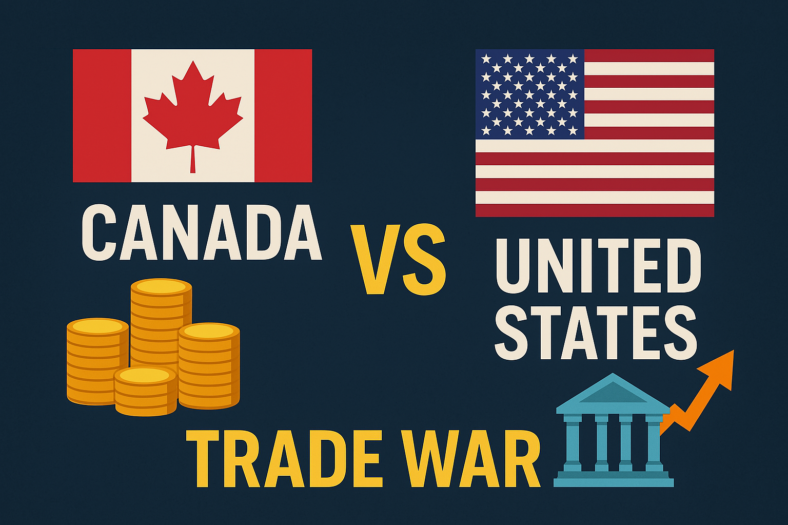The Best Cryptocurrency Exchanges in Canada
Looking for the best cryptocurrency exchanges in Canada? This guide will introduce you to five top platforms, each offering unique features and services for Canadian users. Click on the links below to explore each exchange in detail:
1. Bitbuy
Features and Details of Bitbuy
Bitbuy is one of Canada’s most popular cryptocurrency exchanges. It’s known for its ease of use and strong security measures. The platform supports various cryptocurrencies and offers both a basic and advanced trading interface, making it suitable for beginners and experienced traders alike.
Fees
Bitbuy charges 0.2% for buying and selling cryptocurrency. For deposits, Interac e-Transfer costs 1.5%, and wire transfers cost 0.5%. Withdrawals via Interac e-Transfer have a 1.5% fee, while wire transfer withdrawals cost 1%.
Service Offered
- Buy and sell Bitcoin, Ethereum, and other major cryptocurrencies
- Crypto custody services
- Advanced trading platform for professional traders
USP
Bitbuy is known for its stringent security measures, which include full insurance for all assets held in cold storage. It’s one of the few Canadian exchanges with this level of security.
Pros and Cons
| ✔ Low trading fees | ✖ Limited crypto assets compared to global exchanges |
| ✔ High-security standards | ✖ Higher deposit and withdrawal fees for certain methods |
| ✔ User-friendly interface | ✖ No margin trading |
| ✔ 100% Canadian exchange | |
| ✔ Advanced trading tools available |
Google Reviews
Bitbuy has a 4.5-star rating on Google, with users praising its customer service and ease of use.
2. Coinsquare
Features and Details of Coinsquare
Coinsquare is another leading Canadian cryptocurrency exchange. It supports a wide range of cryptocurrencies and allows users to trade using both Canadian dollars (CAD) and other fiat currencies. Coinsquare is popular for its low-fee structure and wide variety of services.
Fees
Coinsquare charges up to 0.2% for trading on its platform. For deposits, there is no fee for bank wire transfers, but Interac e-Transfer incurs a 2.5% fee. Withdrawal fees depend on the method chosen.
Service Offered
- Spot trading in multiple cryptocurrencies
- Over-the-counter (OTC) services for high-volume traders
- Crypto custody services
USP
Coinsquare is one of the few Canadian exchanges that allow users to trade in CAD, USD, and EUR, making it more flexible for international traders.
Pros and Cons
| ✔ Low trading fees | ✖ Slower customer support during peak times |
| ✔ Supports multiple fiat currencies | ✖ Fees for deposits via Interac e-Transfer |
| ✔ Secure platform with cold storage | ✖ Limited advanced trading features |
| ✔ User-friendly for beginners | |
| ✔ OTC services for high-volume traders |
Google Reviews
Coinsquare has a 4.2-star rating on Google, with users appreciating its reliability and security but sometimes mentioning slower customer support.
3. NDAX (National Digital Asset Exchange)
Features and Details of NDAX
NDAX is a Canadian-based cryptocurrency exchange known for its transparent fee structure and institutional-grade security. It supports over 30 cryptocurrencies and offers a professional trading experience with various tools for both retail and institutional investors.
Fees
NDAX has a flat trading fee of 0.2%, with no hidden charges. Interac e-Transfer deposits are free, and wire transfers have a 0.5% fee. Withdrawals are subject to standard fees depending on the method.
Service Offered
- Crypto trading for over 30 cryptocurrencies
- Crypto staking services
- Institutional services and support
USP
NDAX stands out for offering institutional-grade security, including the use of segregated cold wallets and a transparent fee structure.
Pros and Cons
| ✔ Low, flat trading fees | ✖ Limited number of supported crypto assets |
| ✔ Free deposits via Interac e-Transfer | ✖ No margin trading available |
| ✔ Strong institutional-grade security | ✖ Limited advanced trading features |
| ✔ Offers staking for certain cryptocurrencies | |
| ✔ Transparent fee structure |
Google Reviews
NDAX holds a 4.6-star rating on Google, with users highlighting its transparency and fast transactions.
4. Kraken
Features and Details of Kraken
Kraken is a global cryptocurrency exchange that has established a strong presence in Canada. It is known for its high liquidity, security, and advanced trading features, including margin trading and futures contracts.
Fees
Kraken offers competitive fees, starting at 0.16% for makers and 0.26% for takers. It supports a variety of deposit and withdrawal methods with fees varying depending on the method and currency.
Service Offered
- Crypto trading, including margin and futures trading
- Staking services
- High liquidity trading for major cryptocurrencies
USP
Kraken is known for its advanced trading tools, including margin trading, futures, and staking, making it one of the top choices for professional traders in Canada.
Pros and Cons
| ✔ High liquidity for major cryptos | ✖ Higher fees compared to other Canadian-focused exchanges |
| ✔ Advanced trading features | ✖ May be too complex for beginners |
| ✔ Excellent security measures | ✖ No direct CAD deposits via Interac |
| ✔ Offers staking and margin trading | |
| ✔ 24/7 customer support |
Google Reviews
Kraken enjoys a 4.3-star rating on Google, with users praising its advanced tools and high liquidity but noting that it may be overwhelming for beginners.
5. Binance
Features and Details of Binance
Binance is the largest global cryptocurrency exchange by trading volume and supports hundreds of cryptocurrencies. Though based internationally, Binance is popular in Canada for its low fees and vast range of coins and services.
Fees
Binance is known for its extremely low trading fees, starting at just 0.1%. The exchange also offers various promotions and incentives to reduce fees further.
Service Offered
- Trading of over 350 cryptocurrencies
- Staking, lending, and futures trading
- Binance Smart Chain for decentralized finance (DeFi)
USP
Binance is unmatched in its variety of cryptocurrencies and services, making it a go-to platform for traders looking to diversify their portfolios or engage in DeFi activities.
Pros and Cons
| ✔ Lowest fees in the industry | ✖ Limited CAD deposit methods |
| ✔ Vast range of cryptocurrencies | ✖ Customer support can be slow |
| ✔ Advanced trading tools | ✖ Regulatory concerns in Canada |
| ✔ DeFi options with Binance Smart Chain | |
| ✔ High liquidity |
Google Reviews
Binance has a 4.1-star rating on Google. Users commend the low fees and vast coin selection but occasionally report issues with customer service and regulatory uncertainty.
Welcome to our comprehensive guide on the best cryptocurrency exchanges in Canada! With the surge in popularity of cryptocurrencies like Bitcoin, Ethereum, and others, there’s an increasing demand for reliable platforms where Canadians can buy, sell, and trade digital assets securely and efficiently. Whether you’re a seasoned crypto investor or just dipping your toes into the world of digital currencies, choosing the right exchange is crucial for a smooth and successful trading experience.
In this guide, we’ll take you through everything you need to know about the top cryptocurrency exchanges operating in Canada. From understanding the key features and offerings of each platform to navigating the regulatory landscape and security considerations, we’ll equip you with the knowledge and tools necessary to make informed decisions about where to trade cryptocurrencies in Canada.
Whether you’re looking for a user-friendly platform for buying Bitcoin, a robust exchange for trading altcoins, or a secure wallet for storing your digital assets, this guide aims to provide you with a comprehensive overview of the best cryptocurrency exchanges available to Canadian residents. By the end of this guide, you’ll have a clear understanding of the options available and be well-prepared to choose the exchange that best suits your needs and preferences.
So, let’s dive into the world of cryptocurrency exchanges in Canada and empower you to embark on your journey into the exciting and ever-evolving realm of digital finance.
What is a cryptocurrency exchange?
A cryptocurrency exchange is a digital marketplace where users can buy, sell, and trade various cryptocurrencies, such as Bitcoin, Ethereum, Litecoin, and others. It serves as a platform that facilitates the exchange of digital assets between buyers and sellers, much like traditional stock exchanges facilitate the trading of stocks and securities.
Here’s how cryptocurrency exchanges typically work:
Marketplace: Cryptocurrency exchanges provide an online platform where users can place orders to buy or sell cryptocurrencies. These orders are matched with other users’ buy or sell orders based on price and quantity, creating a marketplace for trading digital assets.
Order Types: Users can place different types of orders on a cryptocurrency exchange, including market orders, limit orders, and stop orders. Market orders are executed immediately at the current market price, while limit orders allow users to specify a price at which they are willing to buy or sell. Stop orders are triggered when the price reaches a certain level, helping users manage risk.
Trading Pairs: Cryptocurrency exchanges offer various trading pairs, which represent the exchange rate between two different cryptocurrencies or between a cryptocurrency and a fiat currency, such as the Canadian dollar (CAD). For example, the BTC/CAD trading pair represents the exchange rate between Bitcoin and the Canadian dollar.
Fees: Cryptocurrency exchanges typically charge fees for trading on their platforms. These fees may include trading fees, which are charged for executing trades, as well as withdrawal and deposit fees for transferring funds to and from the exchange. Fees can vary depending on the exchange and the type of transaction.
Wallet Services: Many cryptocurrency exchanges also offer wallet services, allowing users to store their digital assets securely on the platform. These wallets may be hot wallets, which are connected to the internet and convenient for frequent trading, or cold wallets, which are offline and offer enhanced security for long-term storage.
Regulation and Compliance: Cryptocurrency exchanges may be subject to regulatory oversight depending on the jurisdiction in which they operate. In Canada, cryptocurrency exchanges are regulated by the Financial Transactions and Reports Analysis Centre of Canada (FINTRAC) and must comply with anti-money laundering (AML) and know your customer (KYC) regulations.
Overall, cryptocurrency exchanges play a vital role in the cryptocurrency ecosystem by providing a platform for users to buy, sell, and trade digital assets. They offer liquidity, price discovery, and accessibility, enabling individuals and institutions to participate in the growing cryptocurrency market.
Pros and cons of cryptocurrency exchanges
Cryptocurrency exchanges offer various advantages and disadvantages, which users should consider when trading digital assets. Here are some of the pros and cons of cryptocurrency exchanges:
Pros:
Accessibility: Cryptocurrency exchanges provide a convenient and accessible way for individuals and institutions to buy, sell, and trade digital assets. Users can access exchanges from anywhere with an internet connection, allowing for seamless trading opportunities.
Liquidity: Many cryptocurrency exchanges have high trading volumes and liquidity, meaning that users can execute trades quickly and at competitive prices. High liquidity can result in tighter bid-ask spreads and reduced slippage, enhancing the trading experience for users.
Diverse Asset Selection: Cryptocurrency exchanges typically offer a wide range of digital assets for trading, including popular cryptocurrencies like Bitcoin and Ethereum, as well as altcoins and tokens. This diversity allows users to access a variety of investment opportunities and diversify their portfolios.
Trading Tools and Features: Cryptocurrency exchanges often provide advanced trading tools and features to help users analyze markets, execute trades, and manage their portfolios effectively. These tools may include charting software, order types, and risk management features, empowering users to make informed trading decisions.
24/7 Market Access: Unlike traditional financial markets, which have limited trading hours, cryptocurrency exchanges operate 24 hours a day, seven days a week. This around-the-clock access allows users to trade cryptocurrencies at any time, accommodating different time zones and trading preferences.
Cons:
Security Risks: Cryptocurrency exchanges are susceptible to security breaches and hacking attacks, leading to the theft of digital assets and sensitive information. Users’ funds may be at risk if exchanges do not implement robust security measures, such as multi-factor authentication and cold storage solutions.
Regulatory Uncertainty: Cryptocurrency exchanges operate in a rapidly evolving regulatory landscape, with varying levels of oversight and compliance requirements in different jurisdictions. Regulatory uncertainty can create challenges for exchanges and users alike, leading to legal and compliance risks.
Market Volatility: Cryptocurrency markets are known for their high volatility, with prices often experiencing significant fluctuations in short periods. This volatility can result in rapid gains or losses for traders and investors, making cryptocurrency trading inherently risky.
Lack of Transparency: Some cryptocurrency exchanges may lack transparency in their operations, including reporting of trading volumes, order book depth, and custody practices. This lack of transparency can erode trust among users and raise concerns about market manipulation and fraudulent activities.
Limited Customer Support: Due to the decentralized nature of cryptocurrency exchanges and the high demand for support services, users may encounter delays or challenges when seeking customer support. Poor customer service can hinder the resolution of issues and negatively impact the user experience.
Overall, while cryptocurrency exchanges offer numerous benefits such as accessibility, liquidity, and diverse asset selection, users should be aware of the potential risks and drawbacks associated with trading digital assets on these platforms. By exercising caution, conducting thorough research, and implementing appropriate risk management strategies, users can navigate the cryptocurrency markets with greater confidence and security.
How to find the best cryptocurrency exchange in Canada
Finding the best cryptocurrency exchange in Canada involves careful consideration of several factors to ensure the platform meets your trading needs, preferences, and security requirements. Here’s a step-by-step guide on how to find the best cryptocurrency exchange in Canada:
Research and Compare Exchanges: Start by researching and comparing the features, fees, security measures, and user reviews of different cryptocurrency exchanges available in Canada. Look for reputable exchanges with a strong track record of reliability and security.
Consider Supported Cryptocurrencies: Determine which cryptocurrencies you’re interested in trading and ensure that the exchange supports those assets. While most exchanges offer popular cryptocurrencies like Bitcoin and Ethereum, not all may support lesser-known altcoins or tokens.
Evaluate Security Measures: Security is paramount when choosing a cryptocurrency exchange. Look for platforms that prioritize security measures such as two-factor authentication (2FA), cold storage for funds, encryption protocols, and regular security audits. Avoid exchanges with a history of security breaches or lax security practices.
Check Regulatory Compliance: Ensure that the cryptocurrency exchange complies with Canadian regulations and is registered with the relevant regulatory authorities, such as the Financial Transactions and Reports Analysis Centre of Canada (FINTRAC). Regulatory compliance helps protect users’ funds and ensures adherence to anti-money laundering (AML) and know your customer (KYC) requirements.
Review Fees and Trading Costs: Consider the fee structure of each exchange, including trading fees, withdrawal and deposit fees, and any other applicable charges. Look for exchanges with competitive fees that won’t eat into your profits excessively, especially if you plan to trade frequently or with large volumes.
Assess User Experience and Interface: Evaluate the user interface and experience offered by each exchange. Look for platforms that are intuitive, easy to navigate, and provide a seamless trading experience. A user-friendly interface can make it easier to execute trades, manage your portfolio, and access essential features.
Consider Customer Support: Check the quality and responsiveness of customer support offered by each exchange. Look for platforms that provide timely and helpful support through multiple channels, such as email, live chat, or phone. Responsive customer support can be invaluable in resolving issues or answering questions promptly.
Read User Reviews and Feedback: Take the time to read user reviews and feedback about each exchange from other traders and investors. Pay attention to both positive and negative reviews to get a comprehensive understanding of the exchange’s strengths and weaknesses.
Test the Platform: Consider opening an account and testing the platform with a small amount of funds before committing to larger trades. This allows you to experience the exchange’s features, trading interface, and customer support firsthand before making a significant investment.
Stay Informed: Stay informed about the latest developments, news, and trends in the cryptocurrency industry, including regulatory changes and security updates. Continuously reassess your chosen exchange to ensure it remains the best fit for your needs over time.
By following these steps and conducting thorough research, you can find the best cryptocurrency exchange in Canada that aligns with your trading goals, preferences, and security requirements.
Types of cryptocurrency exchanges in Canada
In Canada, as in other countries, cryptocurrency exchanges can be categorized based on various factors, including their operation model, the type of assets they offer, and the services they provide. Here are some common types of cryptocurrency exchanges found in Canada:
Centralized Exchanges (CEX):
- Centralized exchanges are the most traditional type of cryptocurrency exchange. They operate as intermediaries between buyers and sellers, matching orders and facilitating trades on their platform.
- These exchanges maintain control over users’ funds and require users to deposit their cryptocurrencies into exchange-controlled wallets to facilitate trading.
- Examples of centralized exchanges in Canada include platforms like Bitbuy, Coinberry, and NDAX.
Decentralized Exchanges (DEX):
- Decentralized exchanges operate without a central authority or intermediary. Instead, they use smart contracts and decentralized protocols to facilitate peer-to-peer trading directly between users.
- DEXs offer greater privacy, security, and censorship resistance compared to centralized exchanges. Users retain control over their funds and trade directly from their wallets.
- While decentralized exchanges are less common than centralized exchanges, some options are available to Canadian users, such as Uniswap, SushiSwap, and PancakeSwap.
Peer-to-Peer (P2P) Exchanges:
- Peer-to-peer exchanges connect buyers and sellers directly, allowing them to trade cryptocurrencies without the need for an intermediary.
- These platforms enable users to create listings to buy or sell cryptocurrencies and connect with other users to negotiate terms and complete trades.
- LocalBitcoins and Paxful are examples of popular peer-to-peer exchanges that operate in Canada, facilitating trades between individuals in the local area or globally.
Crypto Brokerages:
- Crypto brokerages serve as intermediaries between users and multiple liquidity sources, including exchanges, market makers, and OTC desks.
- These platforms offer a simplified user experience and typically cater to beginners or investors looking to buy or sell cryptocurrencies quickly and easily.
- Canadian crypto brokerages like Wealthsimple Crypto and CoinSmart provide users with a user-friendly interface to buy, sell, and manage cryptocurrencies.
Hybrid Exchanges:
- Hybrid exchanges combine features of both centralized and decentralized exchanges to offer users a balance of security, control, and liquidity.
- These platforms may allow users to trade directly from their wallets while also offering order matching and other centralized features.
- While hybrid exchanges are less common, they may offer unique benefits to users seeking a combination of centralized and decentralized trading.
These are some of the main types of cryptocurrency exchanges available in Canada, each with its own advantages, disadvantages, and target users. Depending on your trading preferences, security concerns, and level of experience, you may choose to use one or more types of exchanges to buy, sell, and trade cryptocurrencies in Canada.
Common crypto exchange fees
Cryptocurrency exchanges typically charge various fees for their services, which can impact the overall cost of trading digital assets. Here are some common fees you may encounter when using a cryptocurrency exchange:
Trading Fees: Trading fees are charged when you buy or sell cryptocurrencies on the exchange. These fees are usually calculated as a percentage of the total transaction volume or as a fixed fee per trade. The trading fee structure can vary between exchanges and may depend on factors such as your trading volume and membership level.
Maker and Taker Fees: Some exchanges differentiate between maker and taker fees. Maker fees are charged to traders who provide liquidity to the order book by placing limit orders that are not immediately filled. Taker fees are charged to traders who remove liquidity from the order book by placing market orders that are immediately filled.
Deposit and Withdrawal Fees: Exchanges may charge fees for depositing or withdrawing funds from your account. These fees can vary depending on the payment method used (e.g., bank transfer, credit card, cryptocurrency transfer) and the type of currency being deposited or withdrawn.
Transaction Network Fees: When transferring cryptocurrencies between wallets or addresses, you may incur transaction network fees, also known as blockchain fees. These fees are paid to miners to process and validate transactions on the blockchain network. The fee amount depends on factors such as network congestion and transaction size.
Conversion Fees: If you’re trading between different cryptocurrencies or fiat currencies on the exchange, you may encounter conversion fees. These fees are charged for converting one currency into another and can vary depending on the exchange rate and any additional charges imposed by the exchange.
Inactivity Fees: Some exchanges may charge inactivity fees if your account remains dormant or inactive for a certain period. These fees are designed to encourage users to remain active on the platform and may be charged monthly or annually.
Margin Trading Fees: If the exchange offers margin trading or leverage trading services, users may incur additional fees for borrowing funds or using leverage to amplify their trades. Margin trading fees typically include interest charges on borrowed funds and may vary based on factors such as the borrowed amount and the duration of the loan.
Subscription or Membership Fees: Certain exchanges may offer premium features or subscription-based services for advanced traders or institutional clients. These services may include access to advanced trading tools, market analysis, or personalized support, and users may be required to pay a subscription or membership fee to access them.
It’s essential to carefully review the fee schedule and terms of service of any cryptocurrency exchange before trading to understand the cost implications and ensure transparency in fee structures. By comparing fees across different exchanges and considering your trading needs and preferences, you can minimize trading costs and optimize your overall trading experience.
FAQs about the best cryptocurrency exchanges in Canada
A cryptocurrency exchange is an online platform that facilitates the buying, selling, and trading of cryptocurrencies. It acts as an intermediary, matching buyers and sellers and executing transactions on their behalf.
When choosing a cryptocurrency exchange in Canada, consider factors such as security measures, trading fees, supported cryptocurrencies, user interface, customer support, regulatory compliance, and the reputation of the exchange.
Yes, cryptocurrency exchanges operating in Canada are subject to regulatory oversight by agencies such as the Financial Transactions and Reports Analysis Centre of Canada (FINTRAC) and provincial regulatory authorities. Exchanges must comply with anti-money laundering (AML) and know your customer (KYC) regulations.
Trading fees on cryptocurrency exchanges in Canada vary depending on factors such as the exchange’s fee structure, trading volume, and the type of trade (maker vs. taker). Fees are typically charged as a percentage of the transaction volume or as a fixed fee per trade.
Cryptocurrency exchanges in Canada offer various deposit methods, including bank transfers, credit/debit card payments, and cryptocurrency deposits. Users can choose the deposit method that best suits their preferences and needs.
Generally, reputable cryptocurrency exchanges in Canada implement robust security measures to protect users’ funds and personal information. These measures may include two-factor authentication (2FA), cold storage for funds, encryption protocols, and regular security audits. However, users should conduct due diligence and follow best security practices to mitigate risks.
Yes, many cryptocurrency exchanges in Canada operate 24 hours a day, seven days a week, allowing users to trade cryptocurrencies at any time. Cryptocurrency markets are global and do not have traditional trading hours like stock exchanges.
If you encounter issues with a cryptocurrency exchange in Canada, such as technical problems, account-related issues, or suspicious activity, you can usually contact the exchange’s customer support team for assistance. Most exchanges offer customer support through multiple channels, including email, live chat, and phone.
In conclusion, navigating the landscape of cryptocurrency exchanges in Canada requires careful consideration of various factors, including security, fees, supported cryptocurrencies, user experience, and regulatory compliance. While there is no one-size-fits-all “best” exchange, several platforms stand out for their reputation, reliability, and features tailored to Canadian users.
By conducting thorough research, comparing the offerings of different exchanges, and considering your trading needs and preferences, you can find a platform that meets your requirements and provides a seamless trading experience. Whether you’re a beginner looking for a user-friendly interface or an experienced trader seeking advanced features, there are options available to suit a wide range of users.
Remember to prioritize security by implementing best practices such as using strong passwords, enabling two-factor authentication (2FA), and storing your funds securely. Additionally, stay informed about regulatory developments and adhere to applicable laws and regulations when trading cryptocurrencies in Canada.
Ultimately, the best cryptocurrency exchange for you will depend on your individual circumstances and goals. By taking the time to research and choose a reputable exchange, you can trade cryptocurrencies with confidence and participate in the growing digital asset market in Canada.
Here’s to your success in finding the best cryptocurrency exchange in Canada and achieving your trading objectives in the exciting world of cryptocurrencies!




















